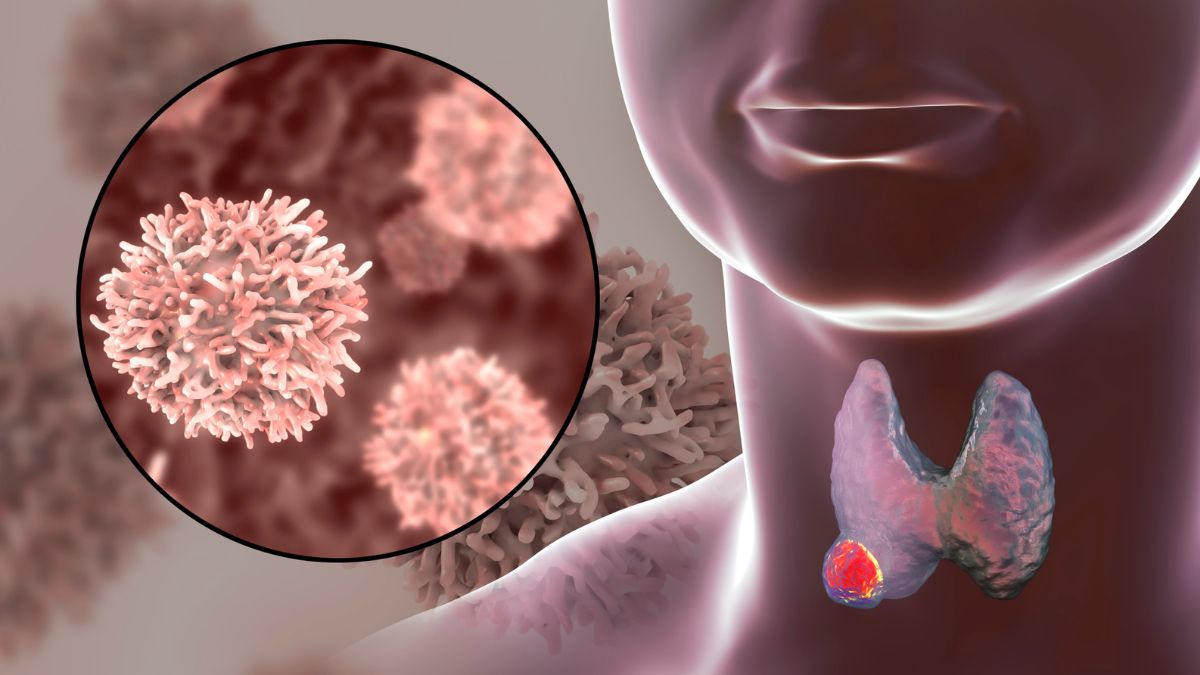- By Priyanka Munshi
- Wed, 27 Mar 2024 06:23 PM (IST)
- Source:JND
Risk factors for developing throat cancer include smoking, excessive alcohol consumption, human papillomavirus (HPV) infection, and a diet low in fruits and vegetables. Symptoms may include persistent sore throat, difficulty swallowing, hoarseness, ear pain, and unexplained weight loss.

Regular screenings and maintaining a healthy lifestyle are essential for reducing the risk of developing throat cancer and promoting overall well-being. In a conversation with Jagran English Dr. Ganesh Agarwal who is a senior consultant at head and neck oncologist at HCG cancer centre in Ranchi talked about some debunking common myths about throat cancer.
According to Dr. Ganesh, Our throats serve as central entry points, acting as channels for food and air that let us breathe, talk, and savor the flavours of our favorite foods. They are also essential for both communication and nutrition. However, throat problems can disrupt these normal functions, causing discomfort and raising concerns like a scratchy feeling, constant harshness, or a nagging lump can send a shiver down your spine. While a sore throat can be caused by various factors, identifying the potential causes, including throat cancer, empowers you to take control of your health.
Throat cancer, also known as head and neck cancer, affecting the voice box (larynx), pharynx (throat), tonsils and the base of the tongue. Cancer forms from genetic alterations within cells, triggering them to multiply rapidly and disregard signals to die. In throat cancer, these mutations can be triggered by several factors, such as:
Tobacco Use- One of the substantial risk factors is smoking and chewing tobacco, damaging the delicate tissues of the throat, and increasing susceptibility to cancer.
Alcohol Consumption- Excessive alcohol consumption intensify the effects of tobacco use and independently contribute to throat cancer development.
Human Papillomavirus (HVP)- This sexually transmitted virus plays a growing role in throat cancer, particularly in cases where tobacco use isn’t a major factor.
Diet- A diet low in fruits and vegetables and high in processed foods may enhance cancer risk.
What Are The Warning Signs/Symptoms To Look After?
Constant Sore Throat- If a sore throat doesn’t improve after two weeks and persists, its best to get it checked by a doctor.
Change In Speech/Voice- Harshness, weak voice or change in speech or quality of voice can be warning signs of throat cancer.
Painful Swallowing- Pain or discomfort while swallowing, especially solid foods could be a warning sign of throat cancer.
A Lump In Neck- A painless lump in neck, especially near the jawline or collarbone, may be a sign of throat cancer, but it could also be caused by other health conditions. See a doctor for evaluation.

Ear Pain- If you have constant ear pain, especially on one side, it could be a sign of throat malignant tumor that has spread.
Unexplained Weight Loss- Experiencing significant weight loss can be a possible symptom, along with other conditions.
Chronic Cough- A cough that doesn’t goes away, and may even.
5 Myths About Throat Cancer
Myth 1 - Only Smokers Get Throat Cancer
While smoking and tobacco consumption are major risk factors, they are not the only reason for getting a throat cancer. The rise of HPV infections is a growing concern, as it can cause throat cancer even in the people with no history of smoking.
Myth 2- A Sore Throat Always Implies Throat Cancer
A sore throat is a common symptom of various ailments, including viral infections and allergies. While constant hoarseness, a lump in the neck and difficulty swallowing can be signs of the throat cancer, they might also indicate other conditions. Early detection is crucial, so consulting a doctor with any concerning symptoms is vital.
Myth 3- Throat Cancer Is A Death Sentence
One of the most common myth and misconception is throat cancer diagnosis automatically equals a death sentence. Thankfully, this is not true. Advancements in the treatment and diagnosis have significantly improved the outlook of throat cancer. Early detection remains key for successful treatment, depending on the stage and location of the cancer, various options exist including surgery, radiation therapy, targeted therapies, and chemotherapy. These can effectively control or even the ailment in many cases.
Myth 4- Treatment Leaves You Disfigured Or Unable To Speak
Advanced therapies strive for optimal outcomes while minimizing side effects. While some surgeries may alter appearance or voice function, reconstructive surgery and speech therapy can help patients regain confidence.
Myth 5- There’s Nothing You Can Do To Prevent Throat Cancer
Limiting tobacco and liquor intake, practicing safe sex to reduce HPV transmission, and maintain a vigorous lifestyle are crucial steps towards prevention. Regularly checking your mouth and throat for any chances, and scheduling regular check-ups with your doctor, can also play a vital role in early detection.

What are the Diagnosis And Treatment?
Effective diagnostic tools and treatment options are available for throat cancer. Diagnosis often involves a combination of physical tests like X-rays, CT scans and Biopsies to confirm the presence and stage of cancer. Treatment plans are tailored to the individual’s specific case and may include surgery, chemotherapy, radiation therapy or combination of all these.
Early detection remains the cornerstone of successful treatment and medications, if you experience constant throat related symptoms, do not hesitate to consult your doctor. Early intervention can significantly improve the chances of successful treatment and long-term survival.
At last Dr. Ganesh said, Remember! Knowledge is power. By debunking myths and staying informed about throat cancer, you can take proactive steps towards prevention and cure.

